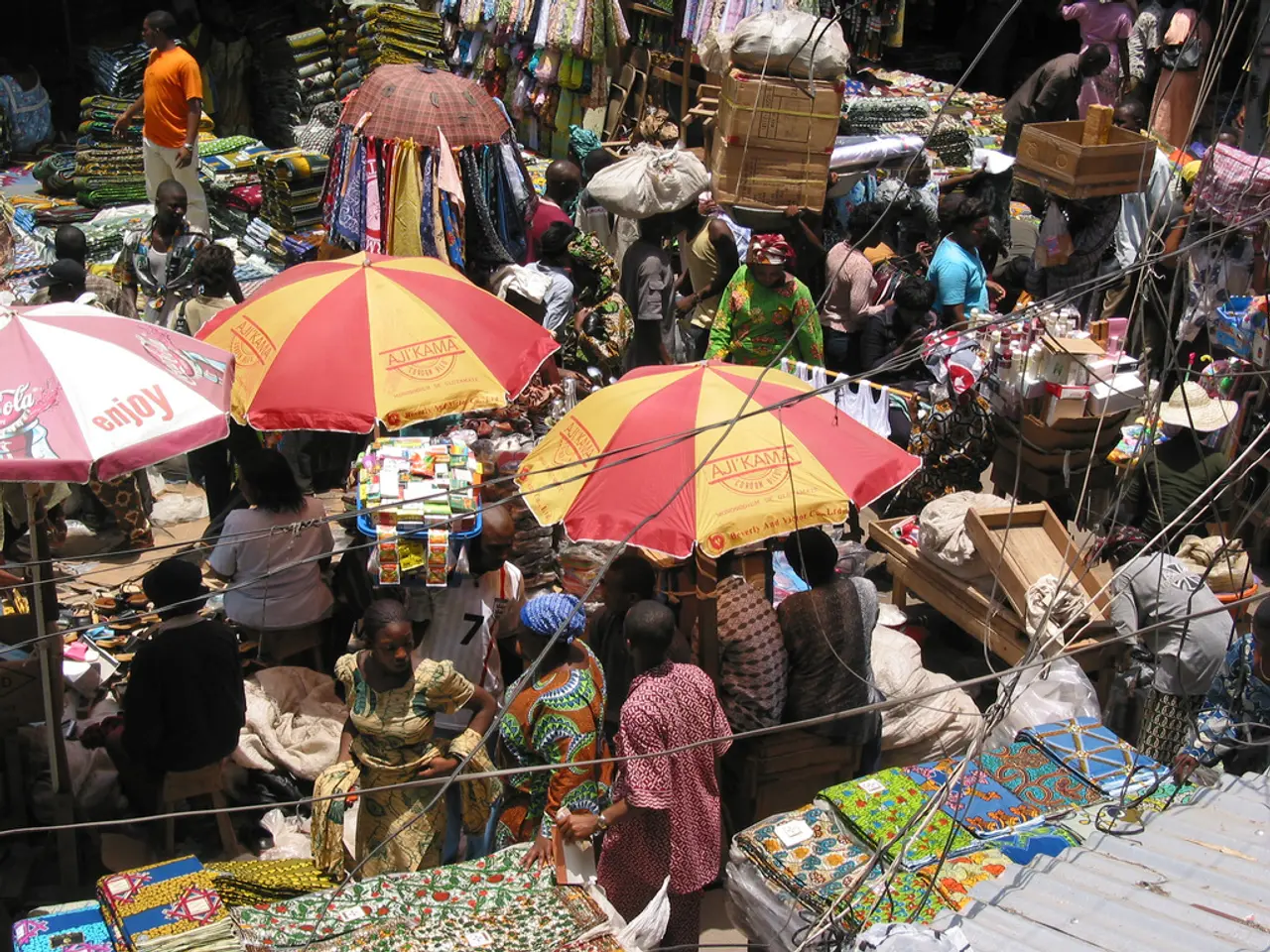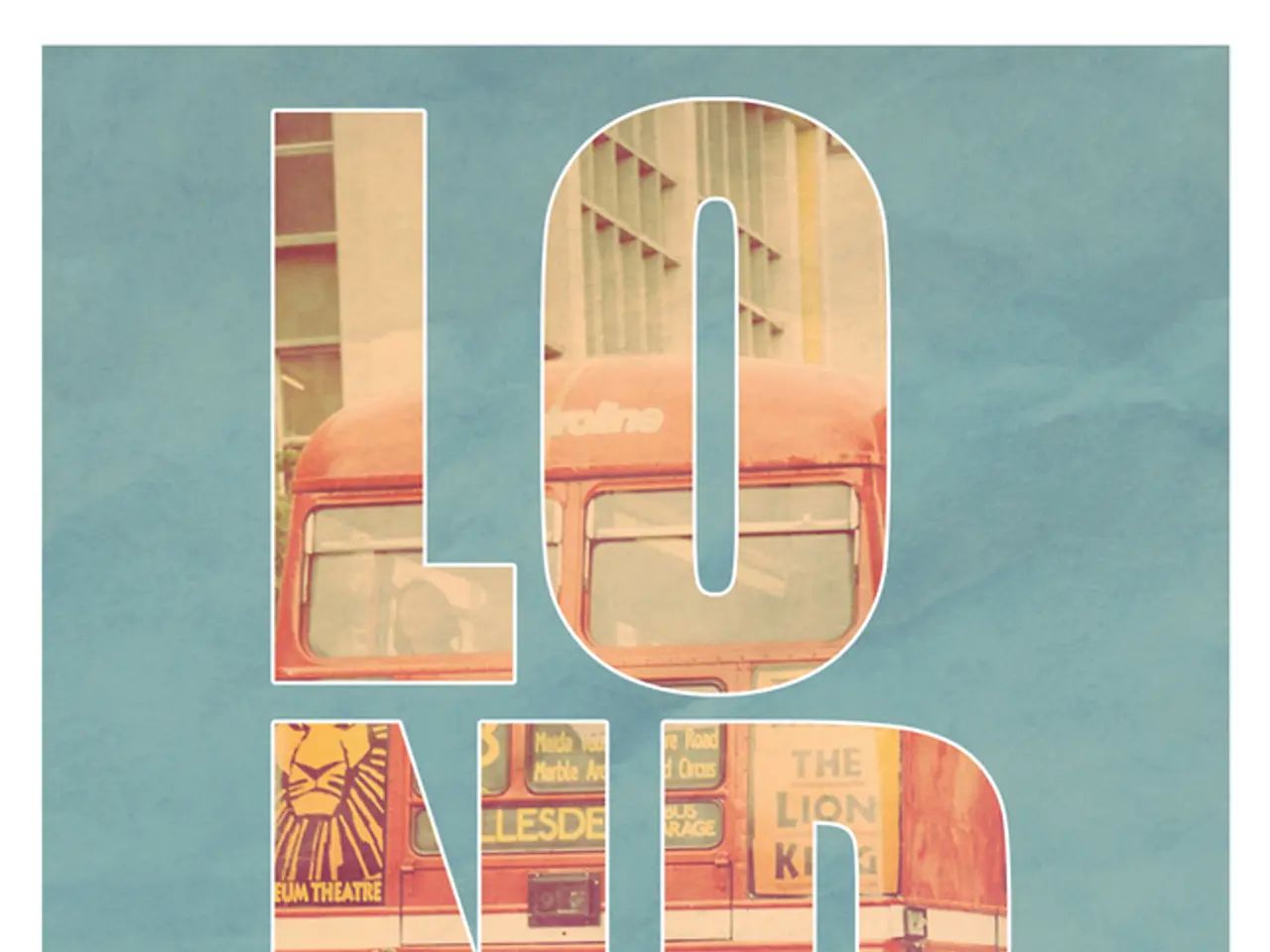Advertisers Express Concern Over Bandit Activities
The trend of organized shoplifting is escalating in Germany, with criminal gangs and migrants increasingly involved in systematic thefts of high-value goods like perfume, electronics, alcohol, and cigarettes for resale on the grey market. This worrying development has caused significant losses to retailers, estimated at around €3 billion in 2024, up 20% from 2022.
Causes
The rise of organized shoplifting can be attributed to several factors. Organized criminal gangs operate in city centres, stealing in bulk and reselling stolen goods. A significant portion of suspects apprehended are non-German nationals, around one-third according to police statistics, some deliberately entering Germany to commit thefts and exploiting loopholes in identity verification and expulsion processes.
Another concerning factor is the weaknesses in law enforcement. Retailers report low prosecution and conviction rates, with 98% of thefts not reported due to frustration over lack of official action. The justice system is overwhelmed, and police resources are insufficient, allowing criminals to act brazenly.
Effects
The increase in organized shoplifting has major implications for retailers, who face massive financial losses. Some stores have resorted to locking high-risk goods behind glass or removing them from shelves entirely, which is seen as a sign of mistrust toward customers. Retailers frequently ban known offenders from premises instead of filing charges due to inefficiency in prosecution.
The rise in organized shoplifting also presents safety challenges. In some cases, it has led to increased aggression and violence against store staff. Overall, the retail environment becomes less safe for employees and consumers, with a rising grey market for stolen goods.
Potential Solutions
Addressing this trend requires coordinated efforts. Strengthening law enforcement and prosecution, enhancing security measures, policy reforms, and community and retailer cooperation are all crucial components of a solution. Calls for more consistent, tougher action against organized theft, including increasing police staffing and resources, have been made.
The installation of more surveillance cameras, use of security tags, locked display cases for expensive or frequently stolen items, and deploying tokens for restricted goods have been implemented by some retailers. Retail associations urge legislative changes to ensure harsher penalties and better cross-border cooperation to expel repeat offenders and criminal gangs.
Greater information sharing among retailers and law enforcement could also improve prevention and rapid responses to criminal groups. In summary, a multi-faceted approach is necessary to combat the rise of organized shoplifting in Germany.
- The escalating trend of organized shoplifting, seen in the retail sector of Germany, is linked to the involvement of criminal gangs and migrants, who steal high-value goods for resale on the grey market.
- The ongoing increase in organized shoplifting has led to significant financial losses for retailers, with estimated losses reaching €3 billion in 2024, up 20% from 2022, causing concerns in the industry and general-news circles.
- To counteract the rise in organized shoplifting, potential solutions include strengthening law enforcement, enhancing security measures, policy reforms, and community and retailer cooperation, as well as increasing the use of surveillance cameras, security tags, locked display cases, and deploying tokens for restricted goods.




